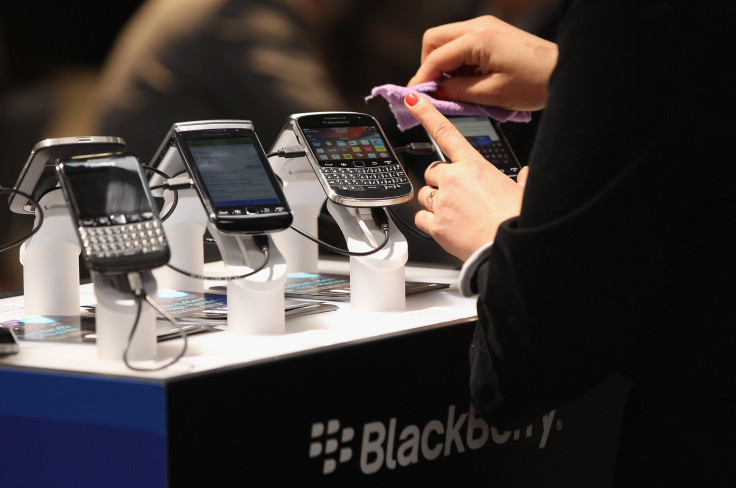BlackBerry Moves To Make Money From Its Patents

Over the past five years, BlackBerry (NYSE:BB) has phased out its smartphone business and expanded its enterprise software portfolio. That turnaround strategy was painful, but it resulted in shallower revenue declines and rising non-GAAP profits.
Another pillar of BlackBerry's turnaround is its effort to monetize its portfolio of over 44,000 patents through royalties and licensing fees. Some companies willingly paid those fees, but many others didn't.
This article originally appeared in The Motley Fool.
In response, BlackBerry sued several big tech companies -- including Alphabet's (NASDAQ:GOOG) (NASDAQ:GOOGL) Google, Facebook (NASDAQ:FB), Snap (NYSE:SNAP), and Nokia (NYSE:NOK) -- over unpaid fees.
Many critics accused BlackBerry of becoming a "patent troll," but this strategy is becoming a core growth driver for its "licensing, IP, and other" revenues -- which nearly doubled annually to $63 million last quarter and accounted for 30% of BlackBerry's top line. Let's untangle the mess of lawsuits to track BlackBerry's progress.
BlackBerry Scores A Victory Against Nokia...
Back in 2012, Nokia tried to block sales of BlackBerry devices in the U.S., U.K., and Canada, alleging patent violations. The suit was unsuccessful, and it's no longer relevant since BlackBerry no longer produces its own smartphones.
However, BlackBerry agreed to pay Nokia $137 million in late 2017 to settle another patent licensing dispute from 2016. In early 2017, BlackBerry had sued Nokia to claim royalties on the Finnish company's mobile networking products -- which BlackBerry says use 11 of its patents.
In August, the U.S. Patent Trial and Appeal Board (PTAB) said that Nokia wouldn't challenge two of the patents related to data transmissions. That's a victory for BlackBerry, but the case is far from over. If BlackBerry eventually prevails, it could hurt the profitability of Nokia's core Networks business, which had an operating margin of just 1.5% last quarter.
...But Loses Battles Against Snap And Google
BlackBerry sued Snap over map and messaging patents earlier this year. The PTAB recently ruled that BlackBerry's claim over a timestamp patent was invalid.
That move was related to a legal action taken by Google, which convinced the PTAB to invalidate three of BlackBerry's patents in late August -- including its timestamp patent and two GUI (graphical user interface) patents.
That's a significant setback for BlackBerry, but it previously won a major battle against Android device maker Blu Products last year. In that case, BlackBerry sued Blu over the alleged infringement of 15 patents related to processors, power management, enterprise software, and wireless equipment. Blu eventually agreed to pay BlackBerry licensing fees.
BlackBerry Challenges Facebook
BlackBerry also sued Facebook earlier this year, claiming that its namesake app, WhatsApp, and Instagram all violated its messaging patents for timestamps, message notification icons, push notifications for ads, and mapping users' media activity.
Facebook (and Snap), however, struck back with a lawsuit that aimed to invalidate seven of BlackBerry's patents and have the suit dismissed. Only one of the patents -- the timestamp one previously mentioned -- was invalidated, and the case was allowed to proceed.
What Does All Of This Mean For BlackBerry?
Patent litigation cases can drag on for years, but BlackBerry clearly plans to keep suing other tech companies to squeeze out licensing revenues. Google and Facebook might invalidate more of BlackBerry's patents, but it still has over 44,000 patents left in the tank.
A few more victories would strengthen BlackBerry's "licensing, IP, and other" business, which already collects significant royalties from Chinese phone maker TCL for the production of BlackBerry-branded smartphones. Some people might call BlackBerry a patent troll, but this looks like a smart business strategy that could offset any swoons at its enterprise software business.
Suzanne Frey, an executive at Alphabet, is a member of The Motley Fool's board of directors. Leo Sun owns shares of Facebook. The Motley Fool owns shares of and recommends Alphabet (A and C shares) and Facebook. The Motley Fool recommends BlackBerry. The Motley Fool has a disclosure policy.





















